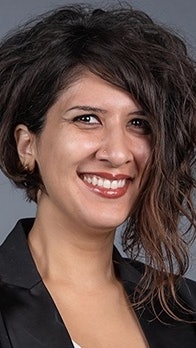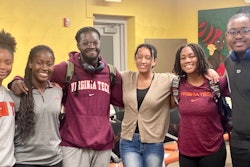News of bell hooks’s death came as a shock to many. The feminist, author, activist, and professor died Dec. 15, 2021, at age 69. But those who knew hooks personally were aware her health had been waning after years of fighting white supremacy and patriarchy.
 Dr. M. Shadee Malaklou
Dr. M. Shadee Malaklou
“The beauty of bell’s work was that it was so accessible, it was not contained in the academy,” said Malaklou. “She didn’t see herself as a pedagogue on high, she was in conversation with pop culture and events.
“There’s something palpably radical about the ways she calls on us to act in love,” she continued. “But institutions can’t love us back.”
Malaklou hosts events like "Evening with an Activist" at the bell hooks center, where students can learn tangible ways to make a difference outside of academia. She said this lesson is deliberate and acknowledges academia and graduate school can be “violent, especially for scholars of color, women, and queer folks of color.”
Even as experts agree that the academic environment has improved over the last forty years, Black women are still shouldering disproportionate burdens compared to their white colleagues, which can negatively impact the quality and potentially the longevity of these women’s lives. By building support groups, Black women have been able to encourage each other to take more time for self-care and mental health. Many are helping each other navigate their sense of duty to their students of color, to their community, to their families, and to themselves.
Dr. Bridget Turner Kelly, an associate professor of student affairs and diversity officer in the College of Education at the University of Maryland, and her longtime mentor and friend Dr. Sharon Fries-Britt, professor of higher education at Maryland, wrote about the burdens of Black women in academia in their 2022 book "Building Mentorship Networks to Support Black Women: A Guide to Succeeding in the Academy." Contributing authors shared stories of resiliency and fortitude built by leaning on each other in toxic environments.






















